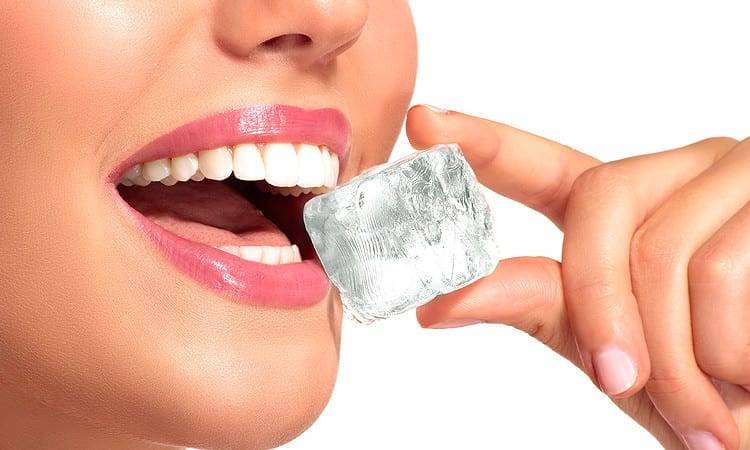 Here at Snow Family Dentistry, we understand that dealing with sensitive teeth can be very frustrating. With that being said, there are multiple ways to help make living with sensitive teeth more bearable. Continue reading to learn what they are!
Here at Snow Family Dentistry, we understand that dealing with sensitive teeth can be very frustrating. With that being said, there are multiple ways to help make living with sensitive teeth more bearable. Continue reading to learn what they are!
Brush With a Potassium Nitrate Toothpaste
There is a toothpaste designed for practically every dental need, including sensitive teeth. Many types of toothpaste that are formulated for sensitive teeth include a compound called potassium nitrate. When used consistently, the toothpaste builds a cumulative barrier that helps to protect the dental nerves within the tubules.
Brush Gently
Although tooth enamel is an extremely hard substance, it can still suffer from erosion. When you brush your enamel vigorously with a hard-bristled toothbrush, you wear away the protective layer of your teeth. Thus, as you clean your teeth, it’s best to use a toothbrush with soft bristles. You should continue to brush for the suggested two minutes, but the force with which you brush and the type of bristles used can impact your dental sensitivity. Harder strokes and bristles can result in more exposed dentin and greater nerve inflammation.
Get Dental Sealants
When it comes to caring for sensitive teeth, your dentist plays an important role. Just as he or she can apply dental sealants to protect your teeth from decay, sealants can also be applied to decrease dental sensitivity. During the application, a resin coating is applied to help form a protective barrier against substances that cause discomfort for sensitive teeth.
These barriers tend to last for years. However, once they wear away, they can be reapplied. For more information regarding these sealants, please give us a call at 480-331-1930!
Don’t Eat High Acid Foods or Drinks
Some foods and beverages are more acidic than others. Items, such as grapefruit juice and red wine can cause the corrosion of your tooth enamel. When your enamel is exposed to acids, minerals within the enamel are dissolved. This dissolution sometimes results in cavities, but it may also increase dental sensitivity. The more that your teeth are exposed to acids, the greater the amount of enamel that is lost.
Use a Mouth Guard
People who regularly grind their teeth at night often increase their dental sensitivity. The grinding wears away the tooth enamel.
Since teeth grinding often occurs while one sleeps, if you grind your teeth, you may not even be aware of when the grinding episodes occur. By using a mouth guard each night, you can protect your enamel from further damage.
For more ways to help reduce your dental sensitivity, contact our office at 480-331-1930 to schedule an appointment!








